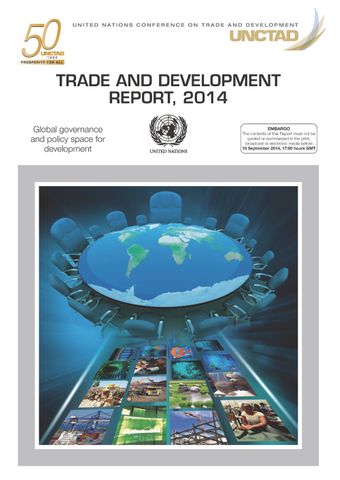Fiscal space for stability and development: Contemporary challenges

- Author: United Nations Conference on Trade and Development
- Main Title: Trade and development report 2014 , pp 161-205
- Publication Date: October 2014
- DOI: https://doi.org/10.18356/28182889-en
- Language: English
- Previous Chapter
- Table of Contents
- Next Chapter
An appropriate macroeconomic environment and industrial policies aimed at production upgrading and diversification need to be permanent elements of a long-term national development strategy, but they have become even more critical as economies are forced to adapt to the new economic landscape emerging from the global financial crisis (TDR 2013). Previous chapters of this Report have shown how current international arrangements in trade and capital flows can inhibit the national policy space needed for countries to adapt; they have also suggested ways for encouraging different patterns of economic integration that would open up new opportunities both for developing countries and their trading partners. Yet this is only one part of the story: even if governments were allowed, within the framework of multilateral, regional and bilateral agreements, to pursue their desired development strategy, they would still need to finance it. In the context of preserving policy space, strengthening fiscal revenues is key, as these are not only more sustainable than other sources of long-term finance, but also less constrained by restrictions and conditions that impose limits on policy space.
© United Nations
ISBN (PDF):
9789210568463
Book DOI:
https://doi.org/10.18356/2b5ac35c-en
Related Subject(s):
Economic and Social Development
Sustainable Development Goals:
-
From This Site
/content/books/9789210568463c011dcterms_title,dcterms_subject,pub_keyword-contentType:Journal -contentType:Contributor -contentType:Concept -contentType:Institution105
/content/books/9789210568463c011
dcterms_title,dcterms_subject,pub_keyword
-contentType:Journal -contentType:Contributor -contentType:Concept -contentType:Institution
10
5


